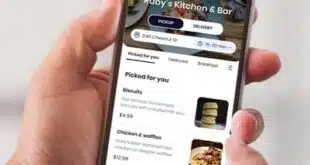TIO Networks Corp. signaled a new strategy last week when the kiosk network struck a deal with IPP of America Inc. to process bill payments at IPP walk-in locations (Digital Transactions News, Nov. 29). For the first time, TIO will be handling transactions on its network without the need to install kiosks or clerk-assisted devices, a move the company says cuts its costs and opens its network to a potential flood of transactions. “Our very valuable back-end switch connected to all those billers was confined to our kiosk network,” says Hamed Shahbazi, chief executive of the Burnaby, B.C.-based network. “Now we've opened it up.” TIO has deployed, or signed deals to deploy, 2,956 devices–including 1,462 kiosks and 1,494 clerk-assisted terminals–in U.S. retail stores to allow consumers to make cash payments to billers like AT&T Inc., Cricket Communications Inc., and Time Warner Cable. But the capital tied up in this hardware imposes a heavy burden on the company, whereas deals with processors like IPP can expand TIO's network reach by thousands of locations at the stroke of a pen and without the capital expense represented by kiosks. IPP operates walk-in bill pay service at 7,000 stores. Under the deal with TIO, IPP is opening 4,500 of these locations to TIO's network. Making such deals possible for TIO is the company's new processing platform, which includes application programming interfaces (APIs) that allow processors like IPP to readily reach TIO's switch. Shahbazi says TIO has spent about $1 million building the platform and the APIs over the past 18 months or so. “It's been pretty costly but we're excited about it,” he says. Adding to the time and cost has been TIO's effort to make its system compliant with the Payment Card Industry data-security standard (PCI). It announced last week that it had achieved compliance. Now TIO plans to seek out more deals like the one with IPP. With its direct links to the accounting systems of more than 30 billers and service providers, TIO is able to process expedited payments for consumers, something walk-in processors find valuable as consumers increasingly demand last-minute, cash-based bill-pay service and show a willingness to pay fees for it. In exchange, TIO gets access to more locations across the country with each new deal, without the need to install hardware, train clerks, or program software. Also attractive to TIO is that it earns from 60 to 70 cents per transaction in the walk-in locations, a rate that Shahbazi says is “just marginally” better than what it earns on kiosk and terminal transactions. TIO, the walk-in processor, and the merchant split TIO's consumer fee, which is typically around $2.70. “We'll be able to tell better [how much TIO will earn] as we get [the IPP locations] deployed,” Shahbazi says. Still, TIO isn't walking away from bill-payment kiosks. But the company is looking to share the capital-expense burden. “We'll continue the kiosk proposition, but won't be in a position where we have to fund all the kiosks,” says Shahbazi. TIO is also looking at replacing a handful of hybrid kiosks in Dollar General Corp. stores with clerk-assisted terminals. The hybrids, which combine bill payment with cash withdrawals, have generated satisfactory transaction volumes but have been the object of store break-ins at some locations, Shahbazi says.
Check Also
COMMENTARY: BNPL Is Booming, And So Are the Risks You Can’t Ignore
Buy now, pay later has changed the way people shop. It’s quick, intuitive, and built …





